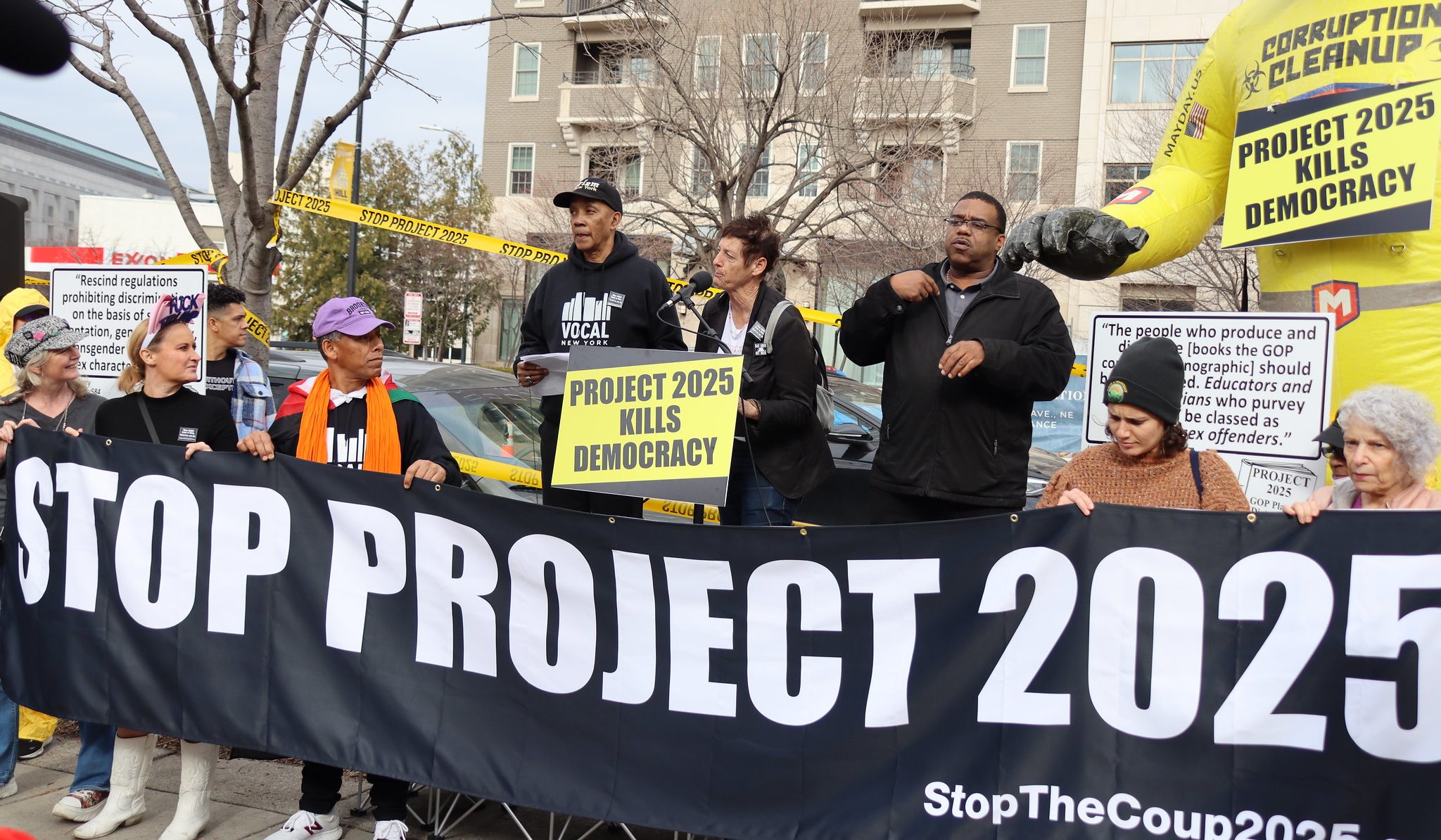The Heritage Foundation’s “Project 2025” — which authors at the Heritage Foundation hopes will serve as a blueprint for a second Trump presidency — promotes an ultra-conservative federal government that would be disastrous for public transit in a nation that must transition from fuel-burning cars.
That argument comes from Transportation for America‘s Beth Osborne in this week’s episode of The Brake podcast, where she breaks down the Project 2025 recommendation to slash transit funding and push communities towards building more single-family-only neighborhoods, as well as explores what it will take to push all of us towards a better conversation.
The following excerpt has been edited for clarity and length.
Streetsblog: I’d like to begin with the umbrella topic of what the U.S. Department of Transportation should be for — which starts, in this document, with a critique of what these the authors think the DOT is: “A de facto grant-making organization whose goal is reducing the number of trips using less fuel and raising the cost of travel to Americans through increased use of renewables.” And it says these goals are not compatible with what should be DOT’s purpose, which they say is “to make travel easier and less expensive.” I’m curious to hear your reactions to both parts of that.
Beth Osborne: You know, I think it shows the typical lack of understanding of transportation that I see across the board at the federal level, likely caused by the fact that the transportation program is trust-funded and not a part of the annual budget process.
It leads to a level of ignorance about transportation, and what it does and what it doesn’t do. Otherwise, you would never have someone believe there’s any logic behind that statement — that we shouldn’t have a goal of allowing people to accomplish what they need to do without [as many trips], but we [also] want to make travel “convenient.”
Putting your destinations closer to where you are, and allowing you to get more done without traveling for as many miles or as long, is making travel more convenient, and less expensive.
But they are understandably muddled for most people when it comes to transportation, because they don’t have a unified sense of what the transportation system should do, or even what it is doing today.
Streetsblog: [At one point, this document says], “With the federal government facing mounting debt, the best course of action would be to remove federal subsidies for transit spending, allowing states and localities to decide whether mass transit is a good investment for them.” What are your reactions to that passage?
Osborne: That’s actually not terribly new. We saw a lot of that back during the Bush administration; [they] came in and said, “Let’s look to defund transit.” And then someone showed them the list of transit agencies [that receive most federal subsidies] and how overwhelmingly rural they are and they [were shocked].
So it’s just based on a lot of ignorance. If they knew more about the program, they’d realize that they’d be harming their own constituencies to an overwhelming extent. And the folks who would be able to pay their way out of it are the bluest of cities. It’s really just punishment to poor areas and red areas.
In practice, though, [if they] shut all the transit down … what happens when there are problems with transit in a lot of cities across the country? They tell everyone not to come out of their homes until it’s fixed? So that’s their plan for the economy? That’s their plan for inflation? To scuttle travel, and to bring all travel to a stop? Genius.
This is an ongoing fuss, and it helps give them something to point to other than the fact that the trust fund has been insolvent [since 2008]. And, really, what an insolvent trust fund means is we shouldn’t have a trust fund. You’re only supposed to have a trust fund if the user is paying for the overwhelming majority of the program, which it hasn’t for decades. So end it. Let’s all just agree to end it, full stop, and put it through the appropriations process every year.
I really I think we should be taking advantage of this conversation. This program is a wreck. It is a bipartisan wreck. And we go through these rounds where progressives get super excited because they have leadership that says the right things, and produces a bunch of plans that say they’re fixing to do all this fun stuff that they never do. And then they freak out when people who say the opposite come in who are no more tethered to any real programs.
We need to grapple with the fact that no one takes this program, or its outcomes, or what we’re getting for hundreds of billions of dollars of taxpayer money seriously.






